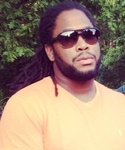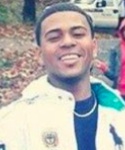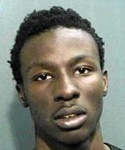The Boston Globe reported this week on the Women Survivors of Homicide Movement, which is urging city officials to put a stop to violent crime.
The mothers held photos of the killed as they stood silently in a lobby near Mayor Martin J. Walsh’s office Friday morning, hoping he would take notice of their plea: Prioritize Boston’s violence and unsolved murders, and commit to change.
Later in the day, in a City Hall meeting room, the mayor told the Women Survivors of Homicide Movement that the city will do just that by upgrading its technology, including replacing antiquated camera systems, assigning more civilian trauma advocates, and more. He said he will release a long-term plan in the coming weeks.
“It’s very emotional for people who lose loved ones to murder and they don’t find the perpetrator,” he said after the meeting. “We have to try and see what we can use technology-wise today in 2014 to try to close those cases.”
Read more
The Boston Herald reported this week that families of three black murder victims feel as if their cases have been neglected for reasons related to race.
The families of three black murder victims in Dorchester, Roxbury and Mattapan — where police stats show homicides are less likely to get solved than the rest of the city — told the Herald they don’t believe their loved ones got the attention they would have if they were white or from out of town.
“I feel like because we’re black, our murders here don’t get solved,” said Melissa Andrade of Dorchester, the sister of Edmund Andrade, who was 23 when he was killed in April 2001. “A white person, their murder gets solved so quick. When it’s a black person here, it’s just like they don’t care. It’s just like, it’s another black person, whatever.”
Yet Andrade said much of the blame falls on the community, where a code of silence discourages witnesses from helping cops.
Read more
Boston Magazine this week profiled Greg Diatchenko, 50, who was found guilty of murder at 17.
Wearing a crisply pressed blue button-down and jeans, Greg Diatchenko could be a suburban dad arriving for a parent-teacher conference. The 50-year-old murderer walks into a sunny conference room at the medium-security state prison in Norfolk, his cheeks freshly shaven, his glasses silver, his eyes blue-green. It’s a warm day in April, and he awkwardly scans to the scrum of people waiting there for him — the prison’s press director, a correctional officer, his lawyer, me — to figure out where to sit. When he shakes my hand, his palms are callused, his fingernails trimmed to the quick. I know he’s nervous, because his lawyer told me. But he just seems thoughtful, reflective, sincere.
Diatchenko’s lawyer has serious reservations about his speaking with a journalist. But Diatchenko hopes his story can help the other 62 Massachusetts inmates who, like him, were sentenced to life without the possibility of parole for crimes they committed when they were still too young to vote. His lawyer sits in on our 90-minute conversation, occasionally shutting down certain avenues of questioning, and Diatchenko heeds his advice not to talk about the brutal crime that landed him in here.
Read more
On progressive news site Truthout last week, activist Jean Trounstine wrote about limitations to a new bill passed by the Massachusetts Senate Tuesday allowing juveniles convicted of first-degree murder to become eligible for parole after serving between 20 and 30 years of their sentence. Trounstine advocates for rehabilitation, rather than prolonged imprisonment, on the premise that the youngsters were not given the opportunity to mature.
“These juveniles are not the monsters so often painted by the media. Certainly many of the crimes are especially heinous,” she wrote. “But while many cases detail horrendous crimes committed by juveniles, there is most often a terrifying story behind the lives of such youth.”
Meanwhile, those on the other side — including families with loved ones lost — have stood in steadfast opposition of the bill.
Read more
The Liberty Voice reported Thursday that on Wednesday, May 14, families of homicide victims gathered at the Massachusetts State House in protest of a recent Supreme Judicial Court ruling that will allow juveniles convicted of first-degree murder a chance at parole.
Yesterday families of homicide victims gathered at the Massachusetts State House to protest a Supreme Judicial Court ruling which will allow a chance at parole for juveniles convicted of first-degree murder. Representatives of murder victims Beth Brodie, Amy Carnevale, Janet Downing, Lewis Jennings and Bonnie Sue Mitchell met at noon to present 15,000 signatures in protest of the recent ruling.
“The call came on Christmas Eve,” said Erin Downing, 37, of Boston.
Downing’s mother, Janet, was murdered, stabbed 98 times by her brother’s best friend Edward O’Brien in 1995. The then 15-year-old O’Brien was found guilty of first-degree murder and sentenced to life in prison without parole. But that could change.
Read more






